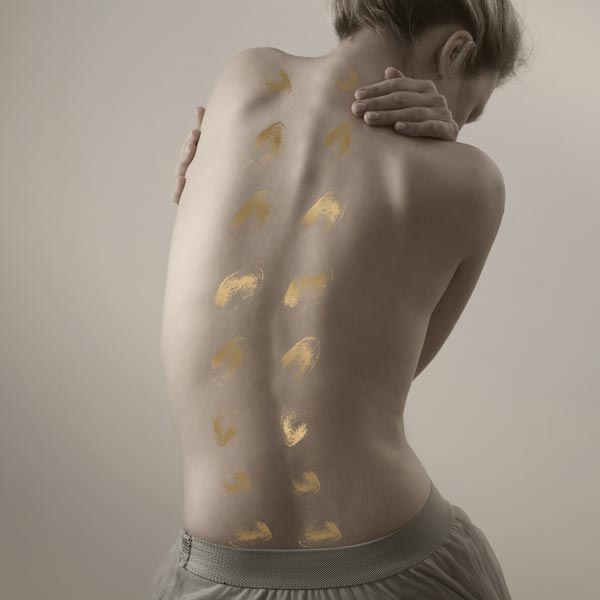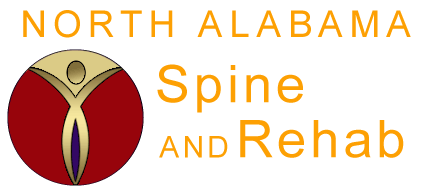The Side Effects of Scoliosis That No One Talks About

Scoliosis, an abnormal curvature found in the spine, affects as many as 3% of Americans- equaling 9 million people in the U.S. The effects that a scoliosis diagnosis can have on an individual’s life can vary significantly depending on the severity and time of onset. Yet, there is one major repercussion that can accompany scoliosis regardless of what other symptoms are present: it’s effects on mental health. Unfortunately, the psychological side effects associated with scoliosis can be just as detrimental, if not more so, than the more obvious physical symptoms that accompany a curved spine.
Opening up dialogue for discussing the possible emotional side effects of scoliosis is a huge step forward in helping those that are suffering to feel heard and seen. Let’s dive into some of the potential long term psychological side effects of scoliosis to be aware of- whether you have scoliosis yourself or a loved one does.
The Lesser Known Side Effects of Scoliosis
Scoliosis is most often first diagnosed in young children or adolescents, a fragile time in life when it comes to mental development. As kids are growing rapidly and learning how to fit into their world, scoliosis can cause them to feel different from their peers. Thankfully, with the right support most kids will grow out of this stage and move on to live fulfilling lives. Here are a few common psychological side effects to watch for when it comes to scoliosis:
- Depression and/or suicidal thoughts
- A feeling of not belonging
- Increased risk of substance abuse
- Low self-esteem due to physical appearance, wearing a brace, or an inability to participate like they’d like to in their lives (i.e. sports, field trips, etc.)
- Trouble developing meaningful relationships
- An introverted personality that results social isolation
How to Better Manage Scoliosis and Mental Health
When it comes to scoliosis, having a well-balanced treatment plan in place can be a true game changer. This means that the applied strategy addresses both physical and mental side effects that an individual with scoliosis is suffering from. Although it’s important not to brush off mental health issues, focusing initially on the physical symptoms can help boost an individual’s confidence and sense of well-being. Thus, we will first cover the best options for addressing physical symptoms- followed by how to better address symptoms related to emotional health.
Managing Physical Symptoms to Restore Balance First
The most common symptoms of scoliosis include pain and fatigue. It should make sense that dealing with these types of symptoms chronically can significantly wear on a person’s mental health. Thus, tackling these symptoms (via active treatment or prevention) is a great first step for boosting overall quality of life. Plus, these symptoms can be aggravated easily with common life occurrences like injury from a car accident, fall, or general overuse. Treatment will focus on managing symptoms effectively, maximizing alignment and movement, and preventing unnecessary progression of the spine curvature itself.
Chiropractic care is one of the top options for addressing these treatment goals. Options they will offer include the following:
- Custom fitting for a scoliosis brace, if needed
- Posture training to maximize daily mechanics
- Holistic pain management to reduce the need for medication and other invasive treatment like surgery that can have major side effects for both physical and mental health
- Address any acute flares of symptoms secondary to aggravation from a fall, poor posture, car accident, etc.
- Exercise training to boost innate balance, energy levels, proper weight management, and confidence
- Adjustments of the spine to maximize optimal alignment and mobility for better nerve health
- Lifestyle recommendations such as diet, weight loss, exercise, sleep, stress management and more
It’s Time to Normalize Mental Health Struggles
Typically, addressing physical symptoms can do a lot for minimizing mental health effects. However, it’s not always enough. Helping a person with scoliosis understand that it’s normal for them to experience emotional struggles can help immensely with living a better life. It’s important to note here that the severity of physical symptoms or curvature in the spine itself does not directly correlate to mental health issues. This means that mild and severe spine curves alike can take a toll on emotional health. If you are suffering yourself or know someone with scoliosis, don’t be afraid to ask for help or assume that all is okay. Here are some ways to feel better supported:
- Professional psychiatric therapy
- Support groups specific for scoliosis (there are tons of them online!)
- Addressing any teasing or bullying quickly
- Encouraging social interaction
- Speak out and get support- know that you are not alone!
Scoliosis and Quality of Life
Thankfully, there is no reason that scoliosis has to have any major effect on the way you live your life. With the right support, both physically and mentally, you can tap into your body and mind’s true potential to thrive. Since scoliosis involves the alignment of the spine, chiropractors are uniquely equipped with the knowledge needed to help you feel your absolute best. They can help you navigate the ups and downs of scoliosis that come with testing your body’s (and life’s) boundaries.
At North Alabama Spine and Rehab in Decature or Huntsville, AL – we are ready to be by your side to give you the guidance you need for optimal spine health in the face of scoliosis or any other health related issues. If you’re in the area and know that you or a loved one could use the extra support, give our clinic a call today.



